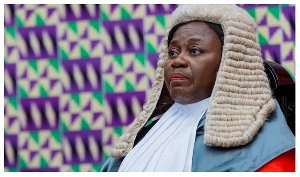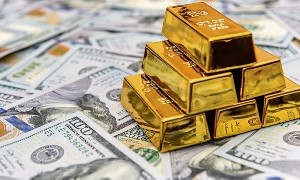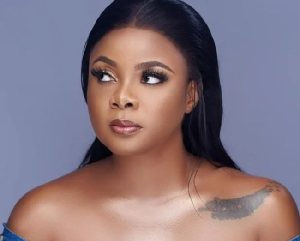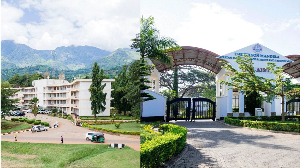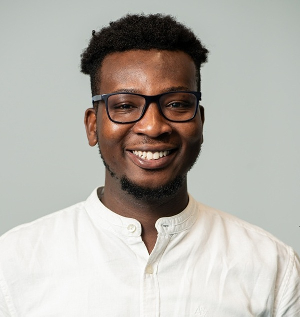By Dr. Michael J.K. Bokor
E-mail: mjbokor@yahoo.com
Tuesday, December 6, 2011
Ghana has had several of such politicians, starting from when partisan politics was first allowed in the late 1940s to date. Most of those who stood against Nkrumah’s CPP were no match and were easily disposed of as Nkrumah constituted himself into Ghana’s Life President until he was booted out of office in 1966.
The August 1969 general elections gave rise to all manner of politicians, some of whom were Willie Lutterodt (whose People’s Popular Party, PPP, was banned because the party’s acronym sounded like the CPP that the NLC government had banned); Imoru Ayana and his People’s Action Party; Gbedemah’s National Alliance of Liberals (NAL); and Busia’s Progress Party (PP), among others.
Obviously, the pro-“Mate Me Ho” Progress Party and the pro-Nkrumah NAL and were the front-runners. All the others just wasted resources.
Come 1979, many more emerged: Victor Owusu’s Popular Front Party; Imoru Egala (later Hilla Limann) and his People’s National Party; as well as others led by the Somanya-based industrialist Kwame Nyanteh of “One-Pound-One-Pound” fame; Col. Bernasko and his Action Congress Party; William Ofori-Atta and his United National Convention; and Nii Diamond Addy and his fish (“Apataa” or “Koobi”) party.
Definitely, the pro-Nkrumahist PNP and Victor Owusu’s PFP (one of the splintered pro-“Mate Me Ho” parties) stood tall; but the other contestants didn’t give a damn.
Come the 4th Republic, we’ve had numerous aspirants from all kinds of parties. Let me pick out those who stood out as pitiable to comment on: Kwabena Darko spent his fortunes on his National Independence Party while General Emmanuel Erskine thought his military successes could promote his bid through the People’s Heritage Party. They lost big time and haven’t bounced back again.
When I saw Professor George Panin Hagan (leading the CPP) at a rally at Chapel Square in Cape Coast, his own home-town, followed by Kwesi Pratt and Araba Bentsi-Enchill in 2000, I laughed myself lame. The rally attendance was sparse with only a handful of children who behaved as if they were more interested in taunting their own indigene (Professor Hagan) or just showing up there to receive their share of gifts.
The elections have attracted other candidates who could have saved themselves from embarrassment but chose to test the depth of a stream with both feet only to end up swimming against the current. The PNC’s Edward Mahama, the CPP’s George Opesika Agudey, and the late Dan Lartey of the GCPP were flagbearers weighed down by their own unpopularity; but they insistently paraded themselves before voters.
The same spectacle was repeated in the campaigns for the 2004 and 2008 elections, except that Paa Kwesi Nduom bore the flag of the CPP and conceded defeat even before the final vote count could be given by the Electoral Commission. Yet, he is back again, shouting the loudest for attention.
The events unfolding now suggest that Nduom and Edward Mahama still consider themselves as fit for the 2012 elections and are doing all in their powers to be fielded by their parties. The internal wranglings notwithstanding, these two people are determined to carry the day. I don’t rule out their expending resources to woo supporters in their parties’ ranks to be able to stand as Presidential Candidates.
This is where my main beef emerges. Are these two people so detached from the reality on the ground that they can’t see themselves as incapable of winning elections in Ghana? Let’s grant them some credit as accomplished professionals in their chosen careers. But they are not in the reckoning. The fact that their political parties don’t command any larger following than the two most vibrant ones (the NDC and NPP) do, and the fact that floating voters won’t go for candidates in political parties that don’t have appropriate structures on the ground is enough to suggest that their chances are dim.
It is not the Ghanaian political tradition for voters to choose people like them. At least, they will go for political parties with the widest appeal. As of now, the CPP and PNC are doomed and don’t have that appeal. So, what attraction do Nduom and Mahama think they have to motivate them into wasting their personal resources on campaigns?
I know that as political institutions, neither the PNC nor the CPP has any large stock of funds or resources to support their campaigns. The state doesn’t even fund political parties’ activities, which means that Nduom and Mahama will have to depend on their own resources to run the campaigns. It is not the expenditure that matters, but the outcome, which is already known even before the race begins. Yet, these politicians will adamantly rush into the thick of money-spending on the campaign trail. More often than not, they don’t even manage to visit all the 230 constituencies or the major towns to sell themselves to the electorate. Not doing so means that they will not be known as such.
Whatever publicity they may get in the media is limited in scope and subject to varying interpretations or misconstruals. In the end, they will not fly. So, can they not just realize their folly and do what is politically wise—to sink their personal differences and come together under one political banner of the pro-Nkrumahist family or even merge with the parties that already have a strong appeal to the electorate? I mean either the NDC or the NPP?
For Nduom, the NPP beckons. There will be nothing amiss if he joins the NPP because having taken off his CPP garb to serve as one of Kufuor’s Ministers, he has already created the impression that the NPP is his true home. Like Freddie Blay, he will be better off politically if he settles down in the NPP. What he is doing, going round and portraying his CPP allegiance, is ridiculous. He doesn’t enjoy the confidence, trust, and support of the CPP family. He is a political prostitute who will not be fielded by the CPP.
If he persists, he may end up only as an Independent Candidate, which will worsen his plight because Ghanaians will not go for an Independent Presidential Candidate when there are well organized political parties providing better candidates. Even the voters in his own Komenda-Edina-Eguafo-Abirem will not root for him, something which is not unusual because they had ever rejected him in previous elections when he contested the Parliamentary seat there.
To all intents and purposes, Nduom is at a dead-end in his political career; but as is characteristic of people like him beclouded by their own self-importance, he will pretend to be seeing light at the end of the tunnel and go ahead to thrust himself upon the landscape to waste his money on futile electioneering campaigns only to back again even before the race runs its full course. It seems Nduom has too much money and too little to do.
Edward Mahama is in a more sorry situation, facing stiff opposition from his own party. He is likely to be kicked out and prevented from standing again. At that point, he will have no other option but to take his strand of the PNC along with him. Like a bad-tempered five-year-old who snatches his football away from his fellow players in anger at not being allowed to have his way, Mahama will definitely not end his political career on a good note. He will count the cost and wonder why he chose to be in politics at all.
Of course, we have precedents to tell us how some candidates who lost elections persisted until luck shone on them. Senegal’s Abdul Wade and Ghana’s Atta Mills did so up to three times or more before eventually winning. But these candidates stood on the tickets of parties with a wide national constituency which, coupled with factors emanating from the inadequacies of the incumbent governments that they had stood against, paved the way for their own successes at the polls to become national leaders.
In Nduom’s case, especially, little exists to his advantage. Despite his joining the caravan of those launching bitter criticisms against the Mills-led government or the ratcheting up of anti-NDC propaganda by the NPP, there is no indication that he is in any good reckoning. The earlier he comes to terms with reality, the better it will be for him. Doing so now will, at least, will help him save himself from needless worries. Will he accept the challenge or continue to run a fool’s errand till he drops dead?
Opinions of Thursday, 8 December 2011
Columnist: Bokor, Michael J. K.


